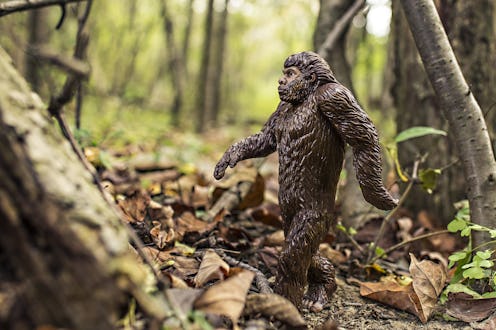
Want to hear a fun fact? Even though we humans have developed opposable thumbs and the ability to stream pretty much every movie ever online, human evolution has not stopped. That's not really how evolution, um, works, you know? The process of evolution wasn't like, "Eh, they seem good." So...aren't you curious what traits humans are still gaining and losing through evolution? Users on Quora definitely were. They posed the question to ex-zoologist and practicing M.D. Emmanuel Fabella and the response was fascinating, dudes.
Now, to be clear, humans are not evolving into a new species — and the reason why is actually kind of tied into the smart-ass joke I made in the previous paragraph. Increasingly, human survival is not based on genetics; rather, it's much more culturally-based, and has been moving in that direction for about the last 40,000 years, ever since humans were like "lol bai Neanderthals."
However, there are still little things that — because bodies are super weird — are slowly but surely changing in our species. And by "slowly," I mean it's still going to take thousands of years, if not more, to fully lose or gain these traits. But still — it's cool to think what human traits our great-great-great-great-great-great-great-great etc. grandkids might not have. Like wisdom teeth. And tailbones.
Humans are going to lose...
1. Wisdom teeth
Our ancestors had much larger jaws, which they needed in order to accommodate a diet of like, leaves and roots and nuts and stuff. Now that our diets have changed immensely, we don't need those massive jaws. Or wisdom teeth. Up to 35 percent of the population is already born without wisdom teeth, and some speculate that they'll ultimately disappear from human bodies altogether.
2. The ability to wiggle our ears
Alas alack, I always wanted to be able to do this! Only about 15 percent of the population can wiggle their ears today, by using their auricularis muscles (the muscles surrounding the outer ear). Our primate ancestors were apparently able to rotate their ears, which helped them pick up softer, predator sounds; but they began to lose the ability once they started living in groups.
3. Goosebumps
You know how goosebumps make the hair on your arm stand up? Yeah, that used to be a lot more scary when we had a lot more hair. Goosebumps occur thanks to our erector pilli muscles, and they made our ancestors look a lot bigger and scarier in the presence of predators. Tbh wish I still had that ability as a response to dudes harassing me on the street.
4. The ability to detect pheromones
No, stop, do not make a creepy speech about the power of pheromones. Yes, 92 percent of humans still possess the Vomeronasal organ but it doesn't actually work for us; it's just vestigial at this point. Take 1,000 steps away from me, thank you so much.
Humans are going to gain...
1. Delayed menopause
According to a study published in the PNAS Journal, natural selection is slowly lengthening a woman's reproductively fertile "era." We are starting our periods earlier, allowing for us to have our first child at a younger age, and menopause is hitting us later. Wow, the circle of life.
2. The ability to tolerate milk ingestion
You know how cats are supposed to love milk? Well...that's true of kittens, but grown cats are lactose intolerant. In fact, tolerance to lactose that persists into adulthood is unique to humans, and has only begun developing over the past 10,000 years (which is why relatively few humans possess it now). In the future, more human adults should be able to happily and healthily ingest dairy. And thank God and evolution for that — because cheese is A+ .
Images: Ryan McGuire/ Pixabay; Giphy (6)